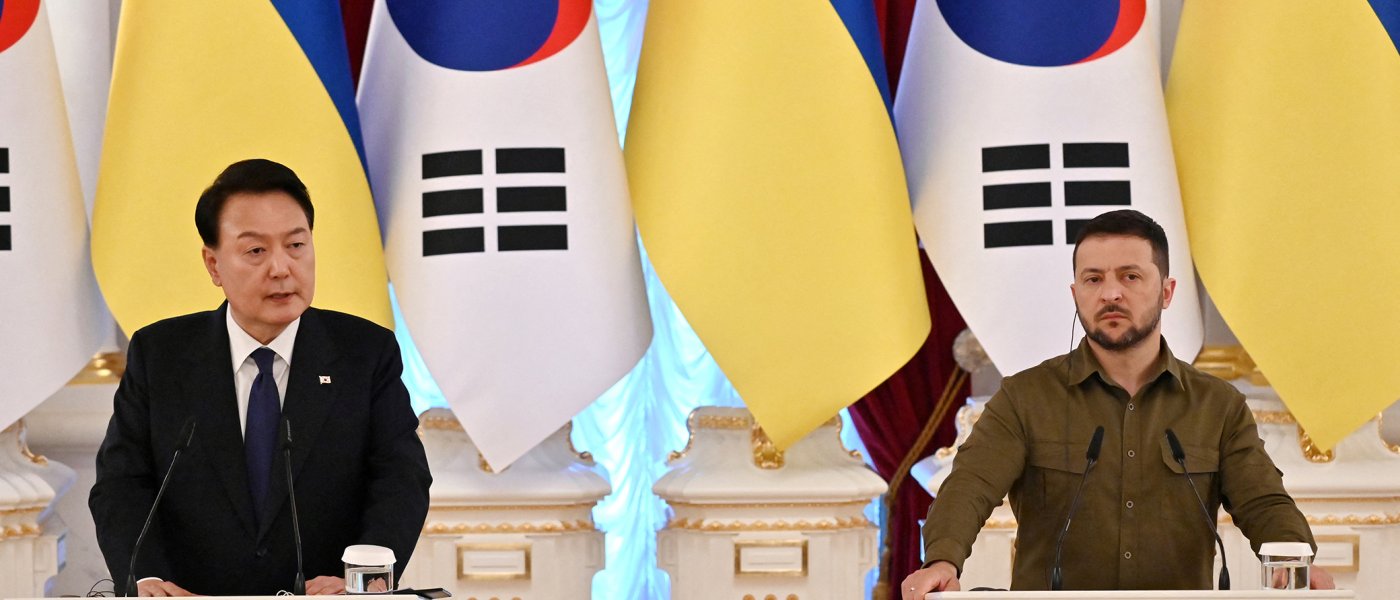North Korea's Military History and Its New Role in Ukraine
Historically, North Korea has occasionally deployed its forces abroad, usually on a smaller scale. For example, North Korean commandos fought in the Vietnam War, and pilots were sent to support Egypt in the 1973 conflict against Israel. However, the scope of North Korea’s current involvement in Ukraine is unprecedented. It has sent troops, weapons, and munitions, including anti-tank missiles, short-range ballistic missiles, and over eight million artillery shells, to assist Russia. This marks a significant escalation, pushing North Korea from a passive supporter to an active belligerent in the conflict.
How This Escalation Changes the Global Stage
Russia’s collaboration with North Korea directly impacts its geopolitical alignment, clearly marking a partnership between Pyongyang and Moscow. This presents a new challenge for South Korea, which has traditionally provided non-lethal aid to Ukraine. South Korean President Yoon Suk-yeol has faced increasing pressure to respond to North Korea's actions, considering the impact of North Korean boots on Ukrainian soil. Yoon has already expressed openness to a “phased approach,” which may include sending defensive weaponry to Ukraine. This consideration arises amid growing demands for South Korea to take a firmer stance against North Korea's increasingly aggressive moves in Russia’s favor.
The Debate on Lethal Aid and Legal Constraints
Currently, South Korea is weighing whether to send lethal aid to Ukraine. South Korea’s Foreign Trade Act prohibits “exporting strategic goods” for non-peaceful purposes, which complicates direct aid to a war zone. Yet, there are interpretations suggesting that providing non-commercial aid for a country under siege may be legally acceptable. Meanwhile, South Korea’s Military Supplies Management Act specifies that any military supplies shipped abroad must not impact South Korea's own defense capabilities. This means older, decommissioned weaponry could be provided, while cutting-edge systems might remain off the table.
The Rising Stakes of North Korea's Engagement in Ukraine
North Korea’s involvement is an alarming move that intensifies the stakes for South Korea. This alliance is underscored by a recent meeting between Russian President Vladimir Putin and North Korean leader Kim Jong Un, where the two nations reinforced their strategic partnership. For South Korea, this alignment signals an urgent need to consider its position in the conflict and potentially provide more substantial support to Ukraine. President Yoon recently stated that he would not rule out supplying lethal weapons to Ukraine, a marked shift from his initial position.
South Korea’s Geopolitical Role and Public Opinion
South Korean public opinion heavily favors staying out of Ukraine's military conflict. A Gallup poll in October showed that 80% of South Koreans opposed sending military aid to Ukraine. Despite this, global pressures are mounting on Seoul to assert itself as a significant player on the world stage. South Korea’s longstanding ambition to join the G7+, coupled with its position as a top-tier global manufacturer of military vehicles and munitions, places it in a unique position to impact Ukraine’s defense capabilities meaningfully. With the European Union gearing up for Ukraine's post-war reconstruction, South Korean companies stand to gain from involvement in this high-stakes rebuilding effort.
Economic and Strategic Benefits for South Korea
Should South Korea commit to supporting Ukraine, there are substantial economic and strategic advantages to be gained. Korean companies are among the global leaders in military and infrastructure technology. By supporting Ukraine now, South Korea could secure a leading role in the eventual reconstruction of the country. This involvement could span everything from building airports and highways to modernizing Ukraine’s energy grid, offering Korean businesses a valuable entry into the European market. Additionally, South Korea’s assistance could significantly elevate its global image, enhancing its diplomatic influence and positioning it as a responsible and decisive global leader.
The Legal Hurdles of Deploying Troops
While South Korea’s Defense Ministry is interested in sending a monitoring delegation to assess North Korea’s combat capabilities in Ukraine, doing so requires legal navigation. Although the Defense Ministry has some authority to dispatch personnel on a small scale, deploying a larger contingent would require approval from the South Korean National Assembly. This has ignited a debate, with opposition leaders arguing that deploying armed forces, regardless of their scale, necessitates legislative oversight.
The Way Forward: Balancing Security, Economics, and Public Opinion
South Korea finds itself at a critical juncture. On one hand, increasing military aid to Ukraine would demonstrate South Korea's commitment to global security and strengthen its ties with Western allies. On the other, public sentiment remains largely against direct involvement. President Yoon must tread carefully, balancing the strategic need to support Ukraine against the public’s reluctance to escalate South Korea’s involvement in a foreign conflict.
Conclusion
South Korea’s decision on whether to support Ukraine more substantially could have far-reaching implications for its global standing, economic interests, and security posture. By providing aid, South Korea would signal its commitment to international peace and its willingness to confront aggression. Conversely, withholding aid could maintain domestic stability but may weaken its influence in global matters.
As South Korea deliberates, the world watches closely. The choices it makes now could determine its role on the world stage for years to come, shaping not only its future but the future of global security.
References
- CBS News. "Russia-Ukraine War: North Korean Troops Combat Kursk Kyiv Attack"
- Newsweek. "South Korea Contemplates Offensive Weapons Aid to Ukraine Amid North Korea's Support for Russia"
- Statista. "South Korea Public Opinion on Sending Aid to Ukraine"
- The Diplomat. "South Korea’s Deepening Dilemma Over Ukraine"
- South China Morning Post (SCMP). "South Korea's Support Strategy for Ukraine and Shifts Under Trump’s Re-Election"

